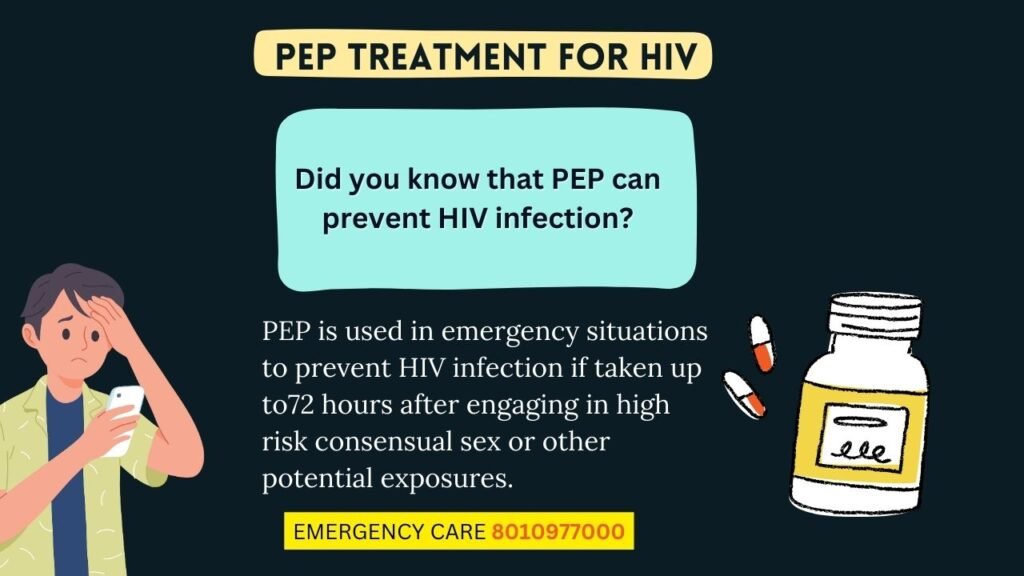PEP, or Post-Exposure Prophylaxis, is a combination of HIV drugs that can prevent the virus from establishing an infection after a potential exposure to HIV. It is an emergency measure used as a last resort and should be taken within 72 hours, ideally within 24 hours, after the event.

Where to Get PEP
PEP is available for free on the NHS but is given only to individuals who meet the guidelines for its use. The best place to obtain PEP is a sexual health or HIV clinic. If you require PEP outside of clinic hours, such as on weekends, the Accident and Emergency Department is the recommended option.
Determining Eligibility
To determine if PEP is appropriate for you, healthcare professionals may inquire about the person you had sexual contact with, the type of sexual activity involved, and the other person’s HIV status and viral load. If the person you had contact with is living with HIV and has an undetectable viral load, the transmission risk may be significantly reduced. PEP may not be necessary.
Taking PEP
PEP should be taken exactly as instructed for a duration of 28 days. Skipping doses or not completing the full course can decrease its effectiveness. The current medication regimen for PEP includes a single tablet of tenofovir disoproxil/emtricitabine (Truvada) and two tablets of raltegravir. Mild side effects such as nausea, headaches, or tiredness may occur in the initial days. It is important to avoid recreational drugs and certain medications that may interact with PEP
Other Considerations
Inform your doctor about any other medications, whether prescription or non-prescription, to avoid potential interactions with PEP. PEP does not protect against other sexually transmitted infections or unplanned pregnancies, and it is not a guarantee against HIV infection. If you suspect exposure to HIV, it is advisable to consider pre-exposure prophylaxis (PrEP) as a preventive measure. PrEP has shown high efficacy in preventing HIV transmission when taken as prescribed.
PEP is an emergency HIV prevention drug that should be taken within a specific timeframe after HIV exposure. It is essential to consult with a healthcare professional at a sexual health or HIV clinic to determine eligibility and receive appropriate guidance. If you have concerns or need further information about PEP, you can contact Dr. Monga at 08010977000.
A: PEP (Post-Exposure Prophylaxis) is a treatment that involves taking antiretroviral drugs after a potential exposure to HIV to reduce the risk of infection. It should be initiated as soon as possible, ideally within 72 hours.
A: Yes PEP for HIV can be effective in reducing the risk of infection if taken within the recommended timeframe.
A: Yes, PEP (Post-Exposure Prophylaxis) can help prevent HIV transmission if taken within 72 hours of potential exposure to the virus.
A: PEP should be taken exactly as instructed by the doctor. It typically involves taking a combination of HIV drugs for 28 days, without skipping any doses, to maximize its effectiveness.
A: It should be taken as soon as possible after potential exposure to HIV. Ideally within 24 hours, and no later than 72 hours (three days) for the best chance of effectiveness.
A: PEP treatment for HIV is available at sexual health or HIV clinics, and in case of emergencies or outside office hours, Accident and Emergency departments can provide it. For a private consultation, Dr. Monga would be the best option to discuss your specific needs and receive appropriate guidance for PEP.
